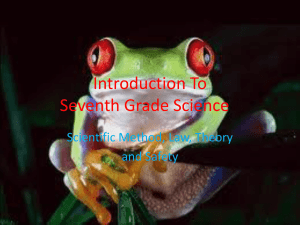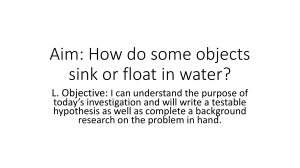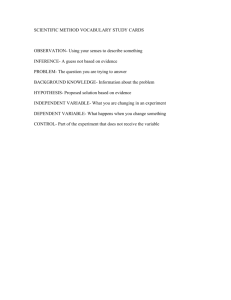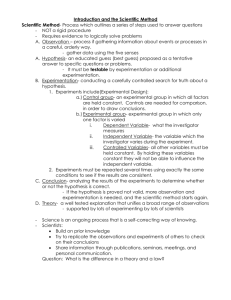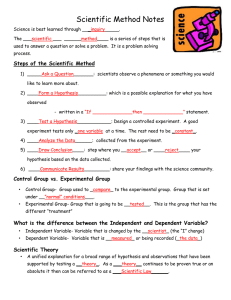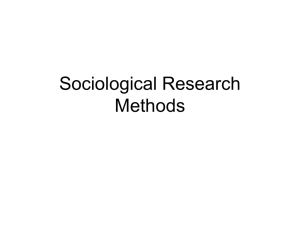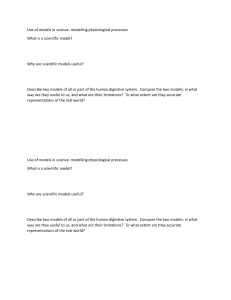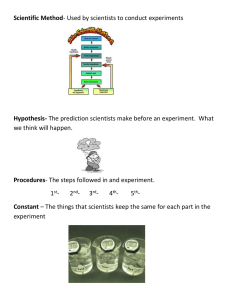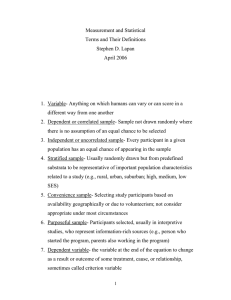Introduction To Seventh Grade Science
advertisement
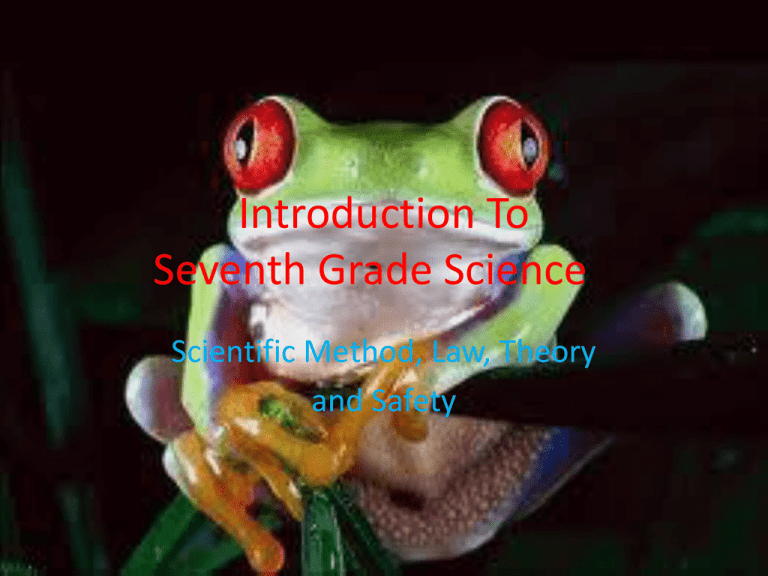
Introduction To Seventh Grade Science Scientific Method, Law, Theory and Safety Vocabulary Science-knowledge of the physical and material world gained through observation and experimentation. Scientist- expert in science who is organized, maintains data, and experiments. Life Science- the study of living things. Ex: biology, ecology, botany, etc. Physical Science- study of matter, energy, chemistry, physics, and astronomy. Earth Science- study of the earth, landforms, earthquakes, weather, rocks, minerals, etc. Scientific Method Scientific Method- method used by scientists to solve everyday problems. Steps to the Scientific Method1.) Define the problem 2.) Form a hypothesis (Testable Prediction) 3.) Test Hypothesis (Steps in experiment) 4.) Collect Data/Results 5.) Analyze Data/Results (Graph) 6.)Draw a Conclusion (Did we support the hypothesis) Independent Vs. Dependent Variable Independent Variable- the factor that can be adjusted by the experimenter Dependent Variable- the factor that changes as a result of the independent variable Example of Independent VariableAmount of water given to a plant each week (Daily 3-5 times a week) Dependent Variable- plant growth based on water given Scientific Law Vs. Theory • Scientific Theory- a description of nature based on many observations; subject to change when evidence changes Example: Evolution • Scientific Law- a rule that describes a pattern in nature and what will happen under specific conditions Example: Newton’s Laws of Motion Science Safety Rules 1.) Do NOT eat anything in the lab 2.) Stay in your seat unless instructed otherwise 3.) Do not block the aisles 4.) Wear safety goggles and equipment as needed 5.) Respect all classroom materials and follow directions
